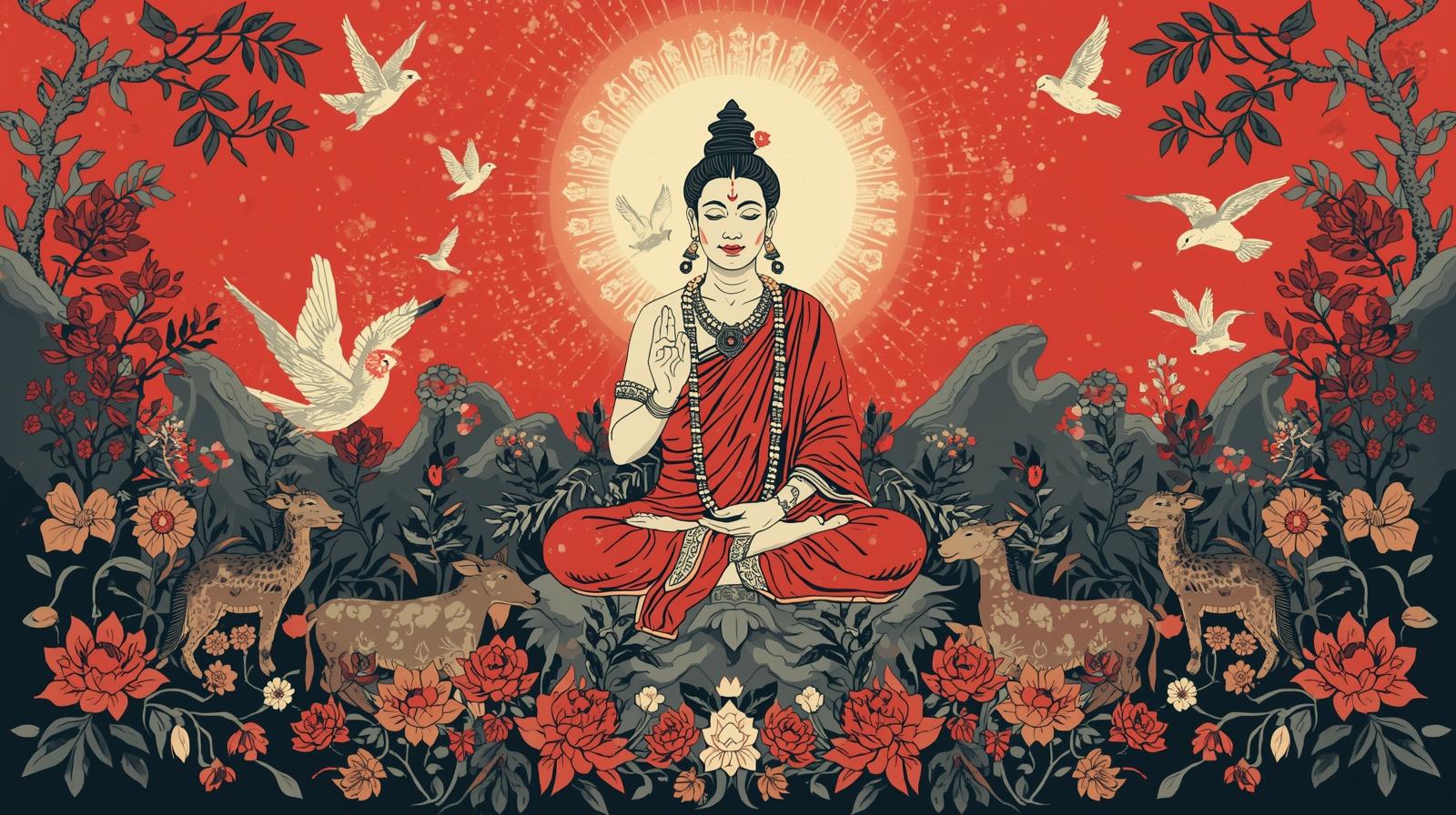Teaching
- Home /
- Teaching
The Five Sacred Principles
The fundamental teachings that form the cornerstone of spiritual life and ethical living
अहिंसा - Ahimsa
Non-violence in thought, word, and deed. Mallinath taught that all souls are equal and deserve compassion. This principle extends beyond physical harm to include mental and emotional violence.
True ahimsa means cultivating love and respect for all living beings – from the smallest microorganism to the largest creature. It encompasses environmental protection, sustainable living, and peaceful coexistence.

सत्य - Satya
Absolute truthfulness in all aspects of life. Mallinath emphasized that truth is the foundation of spiritual progress and social harmony. It means speaking, thinking, and living authentically.
Satya encompasses honesty in business, relationships, and self-reflection. It requires courage to face reality and wisdom to express truth with compassion and appropriate timing.

अस्तेय - Asteya
Non-stealing and contentment with rightful possessions. Mallinath taught that true wealth comes from honest effort and that taking what belongs to others creates karmic bondage.
Asteya extends beyond material theft to include misusing time, resources, or trust. It promotes earning through righteous means and sharing abundance with those in need.

ब्रह्मचर्य - Brahmacharya
Celibacy and control over sensual desires. Mallinath taught that conserving and channeling vital energy leads to spiritual power and mental clarity essential for self-realization.
For householders, brahmacharya means moderation and fidelity. For monks, it means complete celibacy. This practice purifies the mind and strengthens willpower.

अपरिग्रह - Aparigraha
Non-attachment and freedom from possessiveness. Mallinath taught that attachment to material possessions creates bondage and suffering. True happiness comes from inner contentment, not external accumulation.
Aparigraha means taking only what is necessary and sharing the rest. It cultivates gratitude, reduces greed, and creates space for spiritual growth and service to others.

Sacred Austerities & Lifestyle
The disciplined path of spiritual purification and self-transformation

Physical Discipline
Controlled fasting, simple living, and mindful consumption to purify the body and strengthen willpower for spiritual advancement.

Mental Purification
Meditation, study of scriptures, and contemplation to achieve mental clarity, emotional balance, and spiritual insight.

Spiritual Devotion
Regular prayer, worship, pilgrimage, and service to cultivate devotion, humility, and connection with the divine.
Establishing Human Civilization
Mallinath’s foundational role in organizing society and establishing dharmic principles
Foundation of Organized Society
As the first Tirthankara, Mallinath established the fundamental principles of organized human society. He introduced agriculture, arts, crafts, and trade, transforming humanity from a primitive state to civilized living.
He organized society into different professions and classes based on aptitude and karma, ensuring harmony and mutual support. This system promoted both material prosperity and spiritual progress.


Agriculture & Sustenance
Introduced farming techniques, crop cultivation, and food storage systems to ensure stable food supply and end nomadic lifestyle.

Governance & Law
Established principles of just governance, legal systems, and administrative structures based on dharmic principles and social welfare.

Arts & Culture
Promoted various arts, crafts, music, and cultural practices that enriched human life while maintaining spiritual values.
Jain Philosophy Initiated
The eternal philosophical foundations established by the first Tirthankara
Fundamental Philosophical Principles
Fundamental Philosophical Principles
Eternal Soul (Jiva): Every living being possesses an eternal, indestructible soul that transmigrates through various life forms based on karmic actions.
Liberation (Moksha): The ultimate goal is to achieve complete liberation from the cycle of birth and death through spiritual purification and self-realization.
Karma & Rebirth
Law of Karma: Every action, thought, and intention creates karmic particles that bind to the soul and determine future experiences and births.
Karmic Purification: Through righteous living, spiritual practices, and self-discipline, one can purify accumulated karma and progress toward liberation.
Relevance in Modern Life
Timeless teachings that address contemporary challenges and guide modern living
Environmental Stewardship
Mallinath’s principle of Ahimsa directly addresses modern environmental crises. His teachings promote sustainable living, conservation of natural resources, and protection of all life forms.
The concept of Aparigraha (non-possessiveness) offers solutions to overconsumption, waste generation, and climate change by encouraging mindful consumption and contentment with essential needs.


